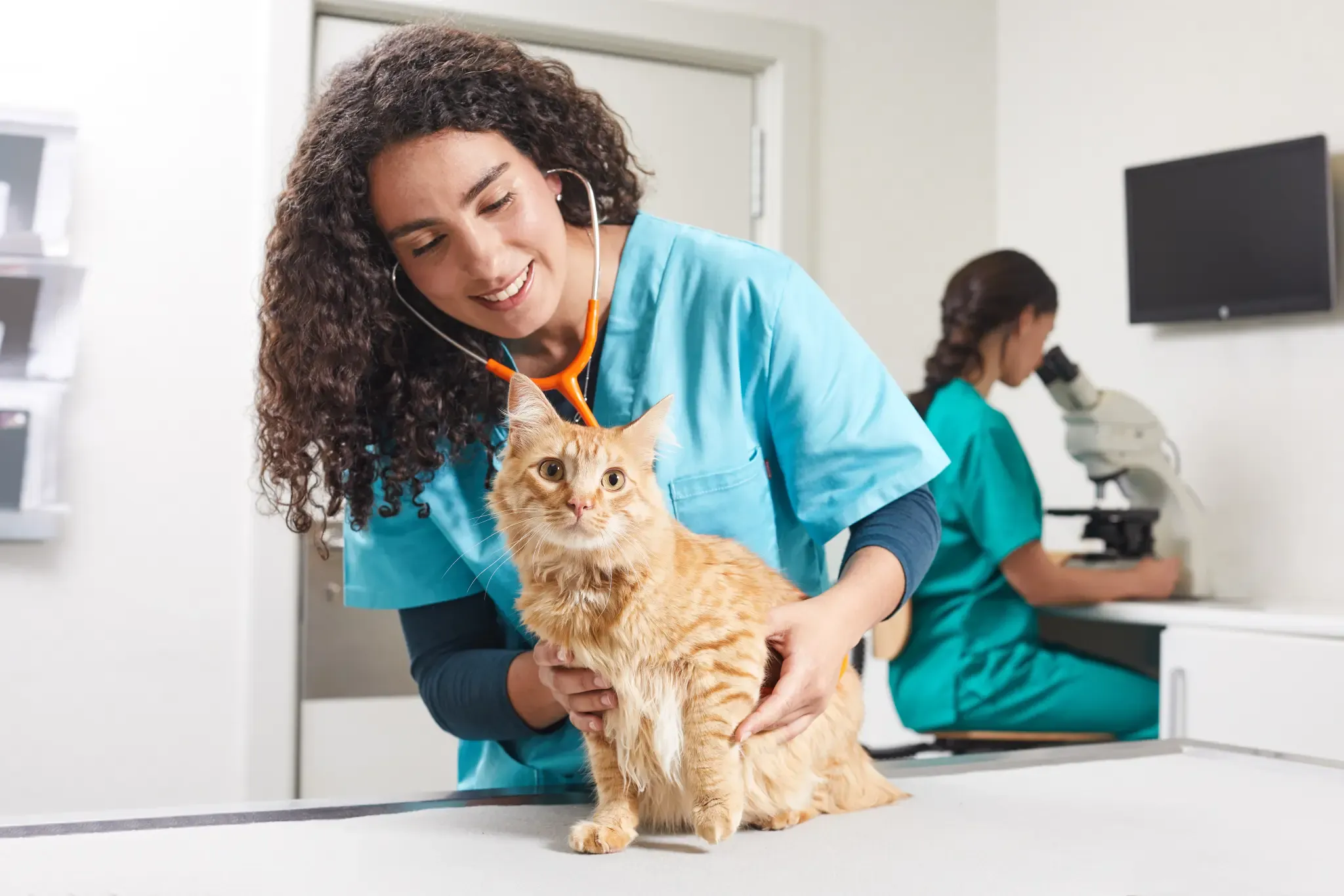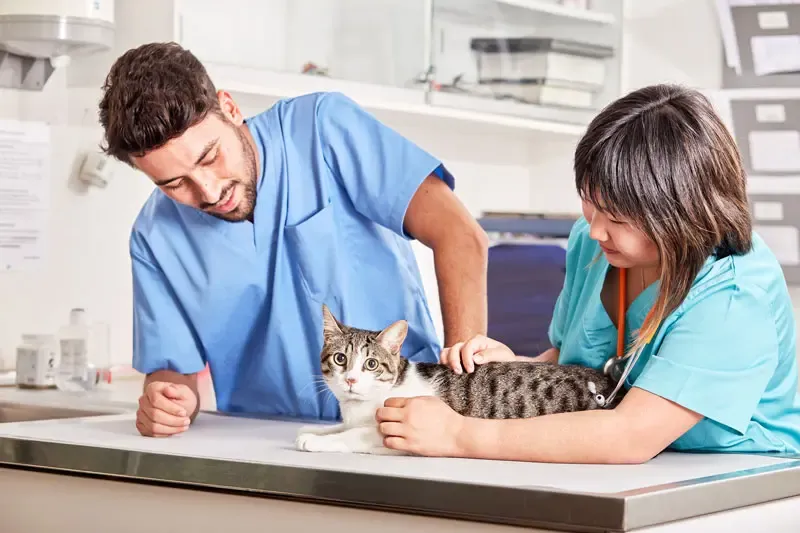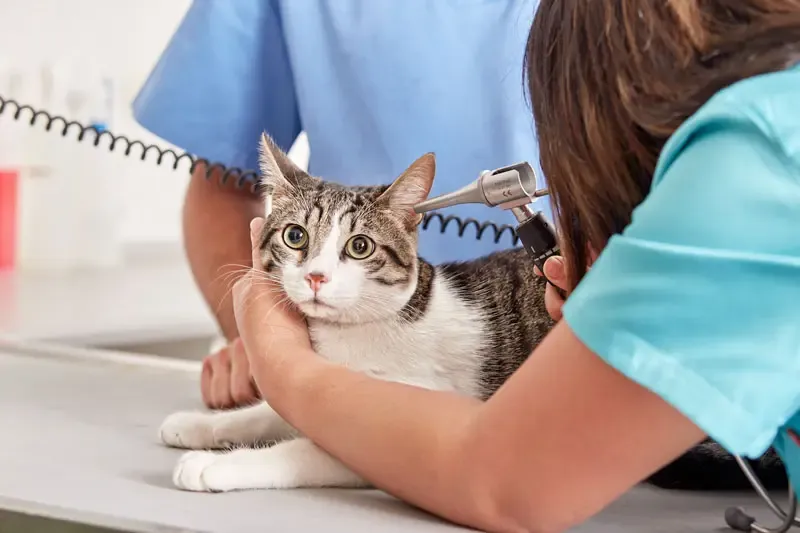What are the most frequent types of worm found in cats?
ROUNDWORMS:
Roundworms are the main intestinal parasite that affects cats . There are two types: Toxocara cati and Toxascaris leonina . Infected cats release eggs into the environment through their faeces , and after 2–3 weeks the eggs become infectious. The eggs can survive and remain contagious for up to 5 years and are very resistant to disinfectants and both high and low temperatures.
They are transmitted to animals when they sniff or lick infected faeces or hunt rodents that host small worm larvae.
In pregnant females, the larvae migrate to different organs where they enter a latent state. After the birth, the larvae are reactivated and migrate to the mammary glands, then infect the kittens through the mother’s breast milk .
TAPEWORMS or FLATWORMS:
As their name suggests, these are flat, whitish and segmented. Their head has hooks or suction cups that help them adhere to the cat’s intestinal wall and a segmented body. Cats eliminate huge numbers of flatworm eggs in their faeces. Sometimes small whitish, seed-like structures are visible to the naked eye around the animal’s anus or in its faeces.
The two most common types are Dipylidium caninum and Taenia taeniaeformis.
- Dipylidium caninum : infection is transmitted by fleas or lice . When cats groom themselves they can ingest infected fleas, then the larvae of the cestodes in the flea’s body become adult worms in the cat’s intestine. Tapeworms usually establish themselves in the small intestine.
- Taenia taeniaeformis : this affects cats that hunt and then ingest the flesh of small rodents (mice, rats, squirrels) infected with tapeworm larvae.
Clinical signs in cats
These may vary depending on the type of parasite , but some common clinical signs include:
- Young cats can suffer stunted or abnormal growth
- Diarrhoea
- Vomiting
- Anaemia
- Inflamed abdomen
- Weight loss
- Constipation
- Dehydration
Are some cats more susceptible than others?
Cats that enjoy an outdoor life with the possibility of hunting rodents or access to grass or areas where infected animals might defecate are more likely to get worms. The same is true for flea-infected animals. Cats that do not receive regular preventive treatment have a greater risk of developing complications associated with internal parasites.
Deworming for cats
The routine treatment of intestinal parasites in cats involves the administration of antiparasitics between the first 6 and 16 weeks of life. This is normally repeated twice a year , but it depends on the cat’s living environment and whether or not it cohabits with other cats.
A drug that acts against roundworms should be used for the first few doses. Adult cats should be given roundworm and tapeworm treatment. To protect against intestinal parasites in cats, a second dose should always be given 2 weeks after the first, as the larvae that were not eliminated with the first dose develop into adults within a fortnight. Hygiene must be maintained and patients treated for fleas regularly .
Antiparasitic treatments
There are numerous commercial products for complete and effective deworming , as well as several presentations and methods of administration: liquids, pastes, granules, injections and pipettes.
The most popular deworming product s used in cats are:
- Panacur (Intervet) : contains fenbendazole and is effective against roundworms, tapeworms and lungworms.
- Drontal Cat (Bayer) : contains pyrantel (for roundworms) and praziquantel (for tapeworms)
- Droncit injection (Bayer) : contains praziquantel , effective against tapeworms.
- Droncit Spot-On (Bayer) : contains praziquantel but is only effective against tapeworms.
- Stronghold spot-on (Pfizer) : contains selamectin and is effective against roundworms. Also works against fleas, scabies (Sarcoptes scabiei) and ear mites (Otodectes cynotis).
- Milbemax for cats(Novartis) : contains milbemycin oxime (effective against roundworms) and praziquantel (effective against tapeworms).
- Profender Spot-On (Bayer) : effective against roundworms and tapeworms.








